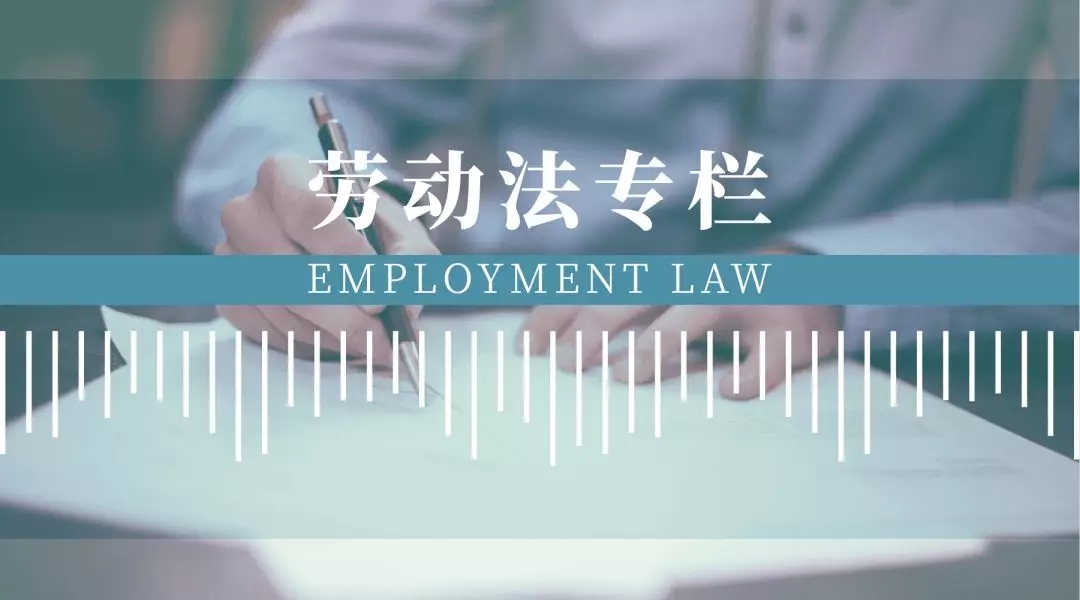
Employment law issues have the potential to significantly affect M&A deals in most jurisdictions and can play a crucial role in deciding whether a deal goes ahead smoothly. A slight problem in an M&A transaction brought on by an employment law issue can cost both transacting parties time and money. In the worst cases, the presence of certain employment-related matters can thwart a potential deal entirely and force it to be abandoned.
在大多数国家,劳动法问题对并购交易可能产生重大影响,对交易能否顺利进行也起着关键作用。在并购交易中,劳动法方面的一个小问题可能会耗费交易双方大量的时间与金钱。在最坏情况下,一些劳动法相关的问题处理不慎,可能会实质性阻碍潜在交易的进行,甚至最终导致交易的失败。
Given the colossal costs that can stem from these labor disputes, it makes sense that employers or potential buyers be proactive and take steps that will cumulatively lower employment-related risk. It is essential that any party to an M&A transaction fully understands the relevant provisions and application of employment law and that they take all necessary precautions to reduce the risks associated with the transaction.
考虑到解决诸多劳动纠纷将会产生巨大的花费,用人单位或潜在的收购方有必要主动采取措施来逐步降低雇佣相关风险。并购交易的各方也有必要充分了解劳动法的相关规定及适用情况,并采取一切必要的防范措施来减少与交易相关的风险。
This article aims to provide a review of some of the typical employment issues that commonly arise during Chinese M&A deals. It also offers practical recommendations to employers as to how they can combat and overcome employment-related issues thereby reducing the overall legal and business risks that are often present throughout Chinese M&A deals.
本文旨在回顾中国并购交易中出现的一些典型和常见的劳动法问题,并向用人单位提供一些关于如何处理此类相关问题的实用建议,从而整体降低在中国并购交易中经常出现的法律与商业风险。
Impact of M&A Deals on
Employment Issues
并购交易对劳动关系处理的影响
First and foremost, in China, the transfer of employees may only be effected by the termination and subsequent rehire of an employee. This differs somewhat to other jurisdictions, such as the UK, where employees are typically transferred automatically when a business is transferred from one owner to another. Moreover, due to the legal regime’s distinct way of handling the transfer of employees, a potential buyer may wish to weigh the advantages and disadvantages between acquiring the assets or acquiring the equity in the M&A deal, with the employment issues in mind.
In an equity deal, the “employer” of the employees does not technically change when the seller’s equity in the target is transferred to the acquiring party. Chinese law does not require the new controllers of the company to enter into new employment contracts with the employees as part of the implementation of the merger since it is deemed that technically there was no change in the employment relationship. In an equity deal, from an employment perspective, the buyer merely steps into the shoes of the seller and the relationship between the employer and the employees is left undisturbed.
In contrast, in an asset deal, specific assets and liabilities are acquired and taken from the seller by the buyer. This changing of hands brings with it a wider array of potential employment law concerns. There is often a need for consultation between employers and employee representatives when an asset deal is being considered as the deal will likely materially affect the interests of (at least some of) the employees. Unlike an equity transaction, an asset acquisition does not see the automatic transfer of employees and their contracts to the buyer. In order to transfer the employment arrangements to the buyer, the target company and its employees must first agree to terminate the existing employment contracts and then the amount of severance that is likely to be paid to the employees. Other issues such as unpaid salaries and benefits and who will pay these will also need to be addressed at this point before the deal can continue.
资产交易中,收购方从出售方手中接手特定的资产和负债。同股权交易相比,资产交易的这种换手过程中可能会产生更广泛的劳动法问题。在考虑进行一项资产交易时,用人单位通常需要和员工进行协商,因为交易可能会实质性影响到(至少一部分)员工的利益。与股权交易不同的是,资产并购中不会出现员工以及他们的劳动合同自动转移给收购方的情况。因此,为实现员工转移,目标公司与员工必须先同意解除员工现有的劳动合同,并对可能支付的经济补偿金进行约定。其他诸如尚未支付的工资和福利,以及谁将支付这些费用等问题,也需要在交易继续推进前得到解决。
Common Employment Issues
in M&A Deals in China
中国并购交易中常见的劳动法问题
A common problem posed in M&A asset deals in China is that of severance: the transacting parties must agree on how to deal with the previous service period of each employee. Usually, this involves service years either being inherited by the new employer or being bought off by the seller upon termination. The latter allows for the new employer to employ the employees without having to recognize and subsequently pay out any prior service period. This does, however, come with other problems. In China, an employer must pay statutory severance calculated at the rate of one month’s average salary for each year of service. The “average salary” is the employee’s average salary during the preceding 12 months prior to the termination. The amount is also listed to an amount equal to three times the local city’s average salary during the last calendar year (which is not applicable to the calculation of the compensation for the service years prior to 1 January 2008). A regular problem in the severance process is created by the fact that employees will often seek to take advantage of pre-M&A severance negotiations and use them as an opportunity to negotiate better terms with their employers. Employees will often ask the seller for much higher severance payments than they would be entitled to under the statutory calculations. There have been extreme cases where, when the seller refuses their demands, employees have resorted to protest, strikes and even violence. Therefore, it is recommended that the buyer choose to recognize employees’ service and have the service years carried over. Not only is the risk of unrest and uncertainty caused by severance negotiation avoided but furthermore, by recognizing the service years the buyer also reduces immediate transaction costs and avoids losing any crucial employees that could be key to the business.
Failure by a previous employer to properly pay its employees for their overtime work is another potential issue present in M&A deals in China. This issue has the potential to leave a buyer liable for the monies owed by the previous employer to the employee as the liability for it will be passed in an equity deal. Employees will retain the right to claim any accumulated overtime pay.
Another employment issue in M&A deals in China is where the target company has failed to take out valid employment contracts with its employees. In China, an employer and employee must sign an employment contract and this contract must be executed within one month of the date on which the employee starts working for the company. Failing to have employees sign employment contracts can prove to be a very costly mistake for employers. In fact, for every month after the first month that the employee works without an employment contract, that employee is entitled to double the wages for the period worked. The limit to this is set at an amount equal to eleven months wage and moreover, an employer and employee will have been deemed to have entered into an open-ended employment contract if they do not sign a written employment contract within one year of the date on which the employee starts work. In an equity deal, a buyer, having taken on the obligations and liabilities of the seller, can be exposed to civil claims resulting from the lack of employment contracts with the employees at the acquired entity.
Another situation that may create employment law issues in M&A deals is where the protection of an employee's personal information is at risk. In M&A transactions, the buyer may request the target company to disclose its employees’ personal data (e.g. social security information) to effectively conduct due diligence. But to comply with PRC regulations on personal information protection, each party should ensure that the employees concerned are fully aware of the disclosure and use of their personal data in the transaction. Further, it is crucial to state in the M&A agreement that the employees’ personal data may only be used for purposes related to the transaction. And for its own protection, the seller should procure the buyer to ensure compliance with the law when using and processing employees’ personal data and to release the seller from liabilities resulted from illegal use.
提前告知和沟通
Pursuant to PRC labor laws and regulations, if an employer’s decision may affect its employees’ vital interests, the employer shall adequately consult with the employees and the labor union and hear their opinions.
根据中国的劳动法律法规,用人单位决定直接涉及其员工切身利益的重大事项时,应当听取工会和员工的意见,与其进行充分的沟通。
However, the consultation requirement is vaguely worded and no penalties are specified in case of violation. Therefore in practice, few companies comply with the requirement. But it is theoretically possible that any decision on significant issues (such as a share or asset transfer) taken without consultation can be challenged and invalidated. To minimize the risk, an employer, especially a state-owned enterprise, would best hold a consultation session with its employees and the labor union in advance of a major decision.
有关前述沟通要求,法律规定上措辞含糊,而且并未设定任何有关违反该要求的惩罚性后果。因此,实践中鲜有企业真正遵循该要求。不过,用人单位在重大事项上(如股权或资产转让)未与员工进行沟通即做出决定,理论上仍存在相关决定被质疑甚至被推翻的风险。为在最大程度上降低该风险,用人单位(尤其是国有企业)最好能在做出有关交易的重大决策前预先与工会和员工进行沟通。
Conclusion and Recommendation
总结和建议
In conclusion, to avoid potentially employment issues that are often present in China M&A deals, it is recommended that the buyer use employment lawyers as early as possible so that a full and thorough due diligence investigation can be carried out against the target company and all its employees. More often than not, employment issues can be detected by effective due diligence and remedied quickly before things have a chance to escalate. Indeed, buyers and sellers should work together in order to minimize the risk of unrest and instability. A detailed strategy as to how to effectively combat initial employee unrest should be devised in order to avoid workplace disgruntlement caused by the transfer escalating into full blown workplace unrest. Additionally, it is recommended that the buyer seeks contractual protection where they choose to assume liabilities from the seller. Pushing the seller to make representations and warranties over possibly hidden and unforeseeable additional costs, such as unpaid overtime, can help reduce risk and can offer the buyer indemnity with losses that arise from legal non-compliance with PRC employment law.
综上所述,为解决中国并购交易中经常出现的劳动法问题,我们建议收购方尽早聘请专业的劳动法律师,以便开展针对目标公司及其员工的全面彻底的尽职调查。通常情况下,收购方可以通过有效的尽职调查发现存在于交易中的劳动法问题,并在事态升级前迅速补救。事实上,收购方和出售方应该共同努力,以减少出现混乱局面的风险。为有效平息老员工的过激反应,交易双方应当制定一份详细的策略和方案,以避免因为人员转移产生的部分不满情绪蔓延升级为整个工作场所的混乱局面。此外,如果收购方选择承担出售方的债务,我们建议可以通过有效的合同约定来使收购方获得补偿与保护。敦促出售方对可能被隐藏且无法预见的额外成本(例如未支付的加班费)作出陈述与保证将有助于收购方降低交易的风险,同时,收购方如果因出售方违反中国劳动法而遭受损失,还可以据此要求出售方对其进行补偿。




